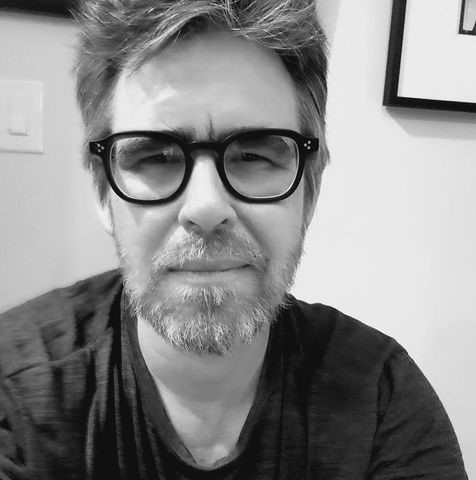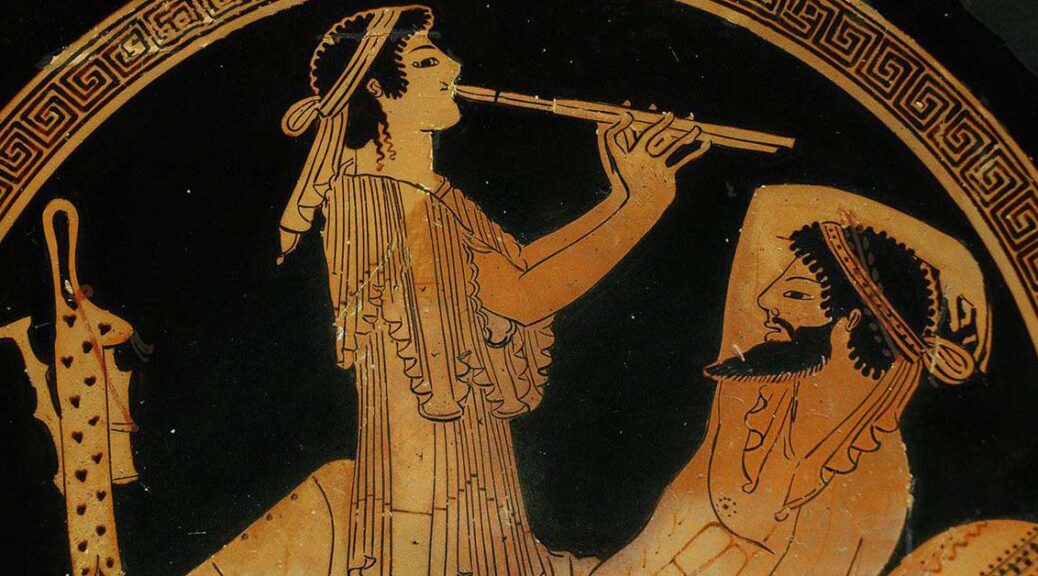In celebration of Open Education Week 2022, the Senate of College Councils and UT Libraries partnered to solicit nominations from students across campus to recognize instructors who increased access and equity by selecting free or low cost course materials for their classes. We’ll be recognizing a few of those nominees this week as Affordable Education Champions!
Affordable Education Champions are instructors who assign free or low cost resources — like textbooks, websites, films, and more — for their courses. Sometimes they author their own materials, and sometimes they’re able to reuse free or low cost work created by others. We share gratitude and appreciation for their commitment to fostering access to high quality education at the lowest possible cost barrier for their students.
Today, we congratulate and thank Dr. Sean Gurd, who was nominated by his students in CTI 301G (Introduction to Ancient Greece) in the Thomas Jefferson Center for the Study of Core Texts & Ideas.

Dr. Gurd is a Professor in the Department of Classics at the University of Texas at Austin. His active research interests include the areas of ancient theatre (especially tragedy), ancient music, and any part of intellectual culture that interfaced with the concept of art (or techne). He is also the director of the Ancient Music and Performance Lab, which is dedicated to exploring innovative ways of integrating arts practice with humanities scholarship.
He has authored four monographs: Iphigenias at Aulis: Textual Multiplicity, Radical Philology; Work in Progress: Literary Revision as Social Performance in Ancient Rome; Dissonance: Auditory Aesthetics in Ancient Greece; and The Origins of Music Theory in the Age of Plato. Dr. Gurd is currently writing a book on the NY area poet and performance artist Arman Schwerner, and a book on Music, Physics, and Theology in Hellenistic writers from Aristoxenus to Philo of Alexandria. He is an editor of Tangent, a scholar-led imprint of punctum books dedicated to publishing innovative books and projects that touch on classical antiquity. All of the imprint’s books will be free to all (open access) on the web six months after their publication.
Like many instructors who select open and free course materials, Dr. Gurd is motivated by a desire for students to guide their own learning with immediate access to high-quality materials. In his Introduction to Ancient Greece course, that means enabling them with texts to which UT Libraries subscribes, available to students at no cost. Importantly, he has also found that these materials support his pedagogical goals. “Often in a large undergraduate class the instructor decides what’s important and assigns readings or texts on that basis. In this class, I want people to discover ancient Greek culture by exploring it themselves; and I want their explorations to be based on what matters to them, not what matters to me. This course is designed to let students do this: they start by identifying a big theme or issue that matters to them, and then they look for ancient Greek texts that address that theme, so that by the end of the semester they have built a small personal anthology of ancient texts. It’s an amazing feeling to be teaching to a large undergraduate class and to know that every single student will finish the class with knowledge that reflects what they individually care about,” says Dr. Gurd. Further, he’s observed a higher level of student engagement that may be partially attributed to the availability of diverse subject matter in the resources available to students.
His students clearly appreciated the cost savings and also noted the ways in which the course material choices enhanced their learning experience. As one of his student nominators shared, “Not only did Professor Gurd save his students money, he did it in a way that actually contributed to the overall education of the class. The translations we used are actually known in the classics world as some of the best translations, but they’re normally quite expensive, but we were able to access them for free” (Freshman, Classical Languages major). They also highlighted the specific database that facilitates access to the course texts, Loeb Classical Library, as fundamental to facilitating both cost savings and the best possible learning experience: “This class is heavily reliant on Greek plays and dramas, which can be expensive, especially for accurate translations, but Professor Gurd had us use UT provided translations from the Loeb Classical Library for the class, which is great! They’re awesome translations, plus they’re free.”
And Dr. Gurd’s personal commitment to openness is not limited to course materials. At each step of the research cycle, he seeks out tools that are available openly. He tells us, “I do most of my writing in a free text editor (Atom), I manage my bibliography using free database tools (Zotero and Bibdesk), and I prefer to finish documents in an open source typesetting system (LateX). I energetically proselytize for this way of doing things, and will show my tools to anyone who asks (and sometimes even to people who don’t ask!).”
We asked Dr. Gurd what advice he might offer to other instructors who are considering making the switch to open, free, or affordable course materials. He shared this wisdom: “When I’m selecting materials, I try to ask myself: what do I want out of this course? How do I imagine the various parts—assignments, class time, reading and research—working together to create a positive experience for students? I feel lucky when I’m able to get everything working together; if it happens that I am able to do it while passing no additional cost to the student, then I really feel like I’ve hit the jackpot. My advice would be to let your goals tell you what the course needs, and to consider nothing sacred (including the tradition of assigning a textbook for purchase) in meeting those goals.”
Need help finding OER and other free or low cost course materials? Contact your subject librarian or Ashley Morrison, Tocker Open Education Librarian (ashley.morrison@austin.utexas.edu).

